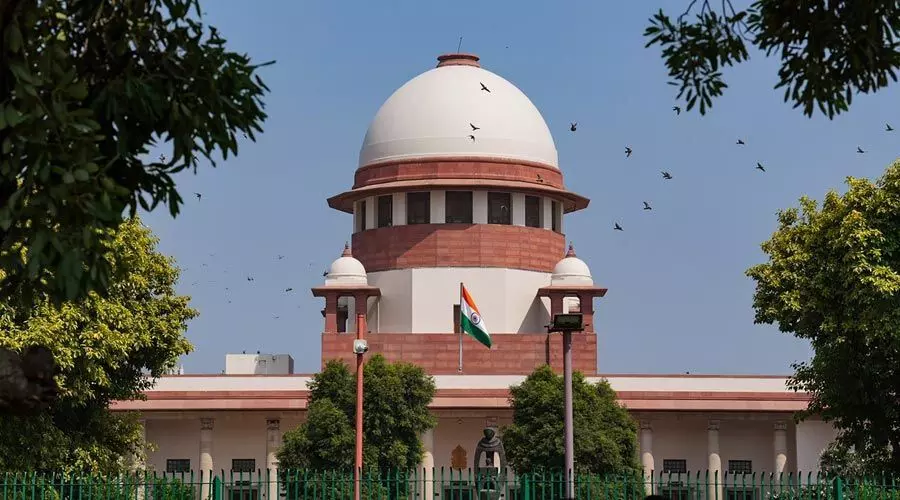SC reserves verdict on pleas challenging Telangana’s ‘local status’ rule for students
Several students had initially approached the Telangana High Court against the government order, arguing that the restriction was arbitrary and unfair
By Sistla Dakshina Murthy
New Delhi: The Supreme Court has reserved its judgment on a set of petitions challenging the Telangana government’s rule that denies ‘local status’ to students who pursue education outside the State for more than two years after completing Class 10.
The matter, which has significant implications for admissions and employment opportunities tied to local quotas, was heard by a bench headed by Chief Justice of India (CJI) Justice BR Gavai.
Students challenge State’s order in Apex Court
Several students had initially approached the Telangana High Court against the government order, arguing that the restriction was arbitrary and unfair.
While the High Court had directed the government to frame clear and comprehensive guidelines on what constitutes ‘local status,’ the students were not satisfied with the judgment and moved the Supreme Court.
CJI questions logic of the two-year clause
During the hearing, the CJI posed a series of sharp questions to the State’s counsel, senior advocate Abhishek Manu Singhvi, over the rationale behind the two-year clause.
“How can a student, born and brought up in Telangana for ten years, lose local status just because they study in another state or country for two years?” Justice Gavai asked.
He noted that students who travel to cities like Kota or even abroad for academic coaching should not be punished for seeking better educational opportunities.
A need for rational and inclusive policy
The CJI also observed that the 2014 policy framework did not appear to mention specific cut-off periods like two or four years.
“If you want to implement the 2024 guidelines, why not apply them prospectively from 2028?” the bench suggested, hinting at a more phased and student-friendly approach.
The court also voiced concern over the undue burden placed on families, particularly those from economically weaker sections.
“You’re effectively expecting even illiterate parents to ensure their children know constitutional provisions like Article 371(D) from Class 8 onwards,” the bench remarked.
State cites precedents from other regions
Defending the policy, Singhvi argued that similar residency requirements exist in other States.
“In Assam, for instance, a student must reside in the State for seven years to be considered local,” he pointed out. He urged the court to look at the wider benefits of the rule and its intent to safeguard opportunities for native students.
After hearing arguments from both sides, the Supreme Court reserved its verdict. The ruling, when delivered, is expected to clarify the validity and implementation of Telangana’s local status guidelines and may have a broader impact on educational mobility and students’ rights across India, experts opined.